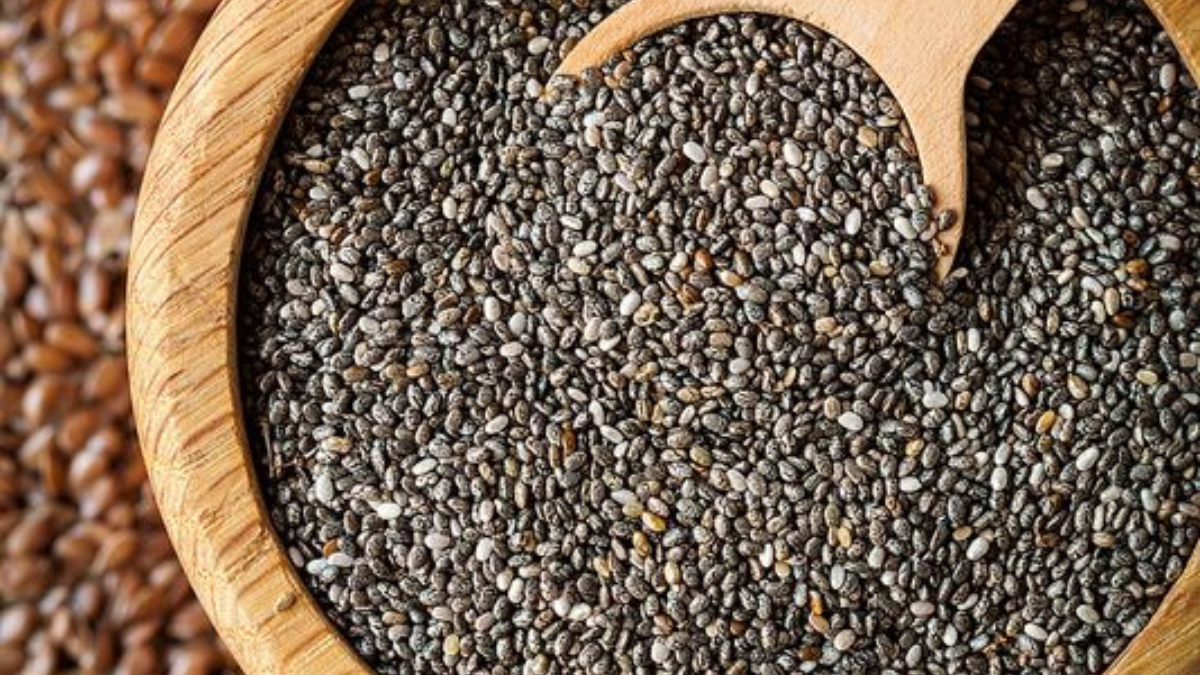Chia seeds have become a trendy addition to our diets, appearing in smoothie bowls, yogurt cups, and desserts. They’re tiny, but they pack a nutritional punch. But here’s the twist: some folks wonder if they can be allergic to these little superfoods.
Well, you’ve come to the right place to find out. In this article, we will explore the world of chia seeds and allergies. We won’t get all scientific on you – no confusing jargon or complicated stuff. Instead, we’ll keep it simple, like having a friendly chat with a neighbor.
So, if you’ve ever asked yourself, “Can I be allergic to chia seeds?” or you know someone who has, stick around. We’ll break it down in plain English and give you the scoop on what you need to know.
Table of Contents
ToggleWhat are Chia Seeds?
Chia seeds might sound fancy, but they’re just tiny seeds from a Salvia hispanica plant. These seeds are special because they’re like little nutritional powerhouses. They’re full of fiber, healthy fats, and protein. Imagine them as nature’s sprinkles – but super healthy ones!
Now, you might be wondering where you’ve seen them before. Chia seeds are like the secret ingredient in many recipes. You can sprinkle them on your cereal, mix them into your yogurt, or blend them into a smoothie. Some people even use them to make a pudding-like snack.
Apart from their nutritional value, chia seeds can absorb lots of liquid, turning into a kind of jelly. This makes them great for thickening things up in the kitchen.
YOU MIGHT ALSO LIKE:Is It OK to Eat Grape Seeds?
Allergens in Chia Seeds
Chia seeds, like many foods, contain proteins. And sometimes, our bodies don’t react well to certain proteins, which can lead to allergies. In chia seeds, the troublemakers are proteins like albumin and globulin. They’re not villains, just tiny molecules that sometimes make a fuss.
When someone is allergic to chia seeds, it’s usually because their immune system thinks these proteins are invaders and goes into defense mode. This defense reaction can lead to allergy symptoms, and we’ll talk more about those later.
Most people munch on chia seeds without any trouble. Some folks are allergic to cats, but most can pet Fluffy just fine.
Symptoms of an Allergic Reaction to Chia Seeds
When someone has a chia seed allergy, their immune system can go haywire. Numerous symptoms can result from this, which can be minor or severe.
Here are some common symptoms to watch out for:
Skin Troubles: You might notice red, itchy hives or a rash. It’s like your skin’s saying, “Hey, something’s not right here.”
Tummy Upset: Sometimes, chia seed allergies can upset your stomach. You might experience nausea, vomiting, or diarrhea – not the most pleasant experience, right?
Breathing Issues: In rare cases, chia seed allergies can cause trouble breathing. If you suddenly find it hard to catch your breath after eating chia seeds, that’s a big red flag.
Swelling: Your lips, tongue, or throat could swell up. This can be scary and is a sign to seek help pronto.
Runny Nose or Sneezing: Just like pollen allergies, chia seed allergies can make your nose run or lead to sneezing fits.
Hidden Sources of Chia Seeds:
So, chia seeds can hide in unexpected places? Yes, indeed! These little guys are like master disguisers; sometimes, you might not even know you’re eating them.
Here are a few sneaky ways chia seeds can find their way into your meals:
Smoothies and Juices: You might think your healthy smoothie is chia-free, but some cafes and stores add them for that extra health boost. Always check the ingredients if you need more clarification.
Granola Bars: Those grab-and-go granola bars can be culprits. Some brands toss in chia seeds for added crunch and nutrition.
Breads and Baked Goods: Chia seeds can sneak into bread, muffins, and cookies. It’s like they want to surprise you with their presence.
Gluten-Free Foods: If you’re into gluten-free eating, be cautious. Chia seeds often appear in gluten-free products because they’re a handy binder.
Salad Dressings: Believe it or not, some salad dressings contain chia seeds for thickness. Always read labels when you’re dressing up your greens.
Energy Drinks: Some energy and health beverages have chia seeds floating around. Check the ingredients, especially if you’re sensitive to them.
Chia Seed Allergies vs. Chia Intolerance:
Now, we’re about to clear up a bit of confusion. You might have heard about chia seed allergies, but there’s something else called chia intolerance. They’re quite different, and knowing the difference is essential.
Chia Seed Allergies: This is when your body’s immune system has a freak-out when it encounters chia seeds. Remember those symptoms we talked about earlier? They’re more likely to appear in folks with chia seed allergies. It’s like your body’s saying, “Uh-oh, we’ve got a problem here.”
Chia Intolerance: Now, this is a bit different. Chia intolerance doesn’t involve your immune system going on high alert. Instead, your digestive system says, “I’m not quite sure how to handle these chia seeds.” You might get tummy troubles like gas, bloating, or diarrhea, but it’s not an allergy.
Precautions to Avoid Chia Seeds in One’s Diet:
If you’ve discovered that chia seeds don’t quite agree with you or have a chia seed allergy, don’t worry – there are ways to stay safe and enjoy your meals without chia-related surprises.
Here are some handy precautions:
Read Labels: Whether you’re grocery shopping or dining out, always check food labels. Look for any mention of chia seeds in the ingredients list. This simple step can save you from unwanted encounters with these little seeds.
Ask Questions: Be bold about asking questions when eating out. If a dish needs to be clearer about its ingredients, just ask the server or chef if it contains chia seeds. Most places are happy to accommodate your dietary needs.
Cook at Home: When you cook at home, you have full control over what goes into your meals. You can skip chia seeds or use alternatives if a recipe calls for them.
Allergen Alerts: If you are allergic to chia seeds, you should carry a card in your wallet or wear a medical warning bracelet. This can save your life in an emergency.
Inform Friends and Family: If you’re sharing meals with others, ensure your loved ones know about your chia seed allergy or intolerance. They can help keep you safe and avoid any culinary mishaps.
Final Words:Side Effects of Overeating Chia Seeds
Chia seeds can add nutrition to your diet. However, some people may be allergic or intolerant. Awareness of the symptoms, hidden sources, and the difference between allergies and intolerance is key. You can still savor a delicious and safe culinary journey with some precautions and label-reading. Stay informed, stay safe, and enjoy your meals!










